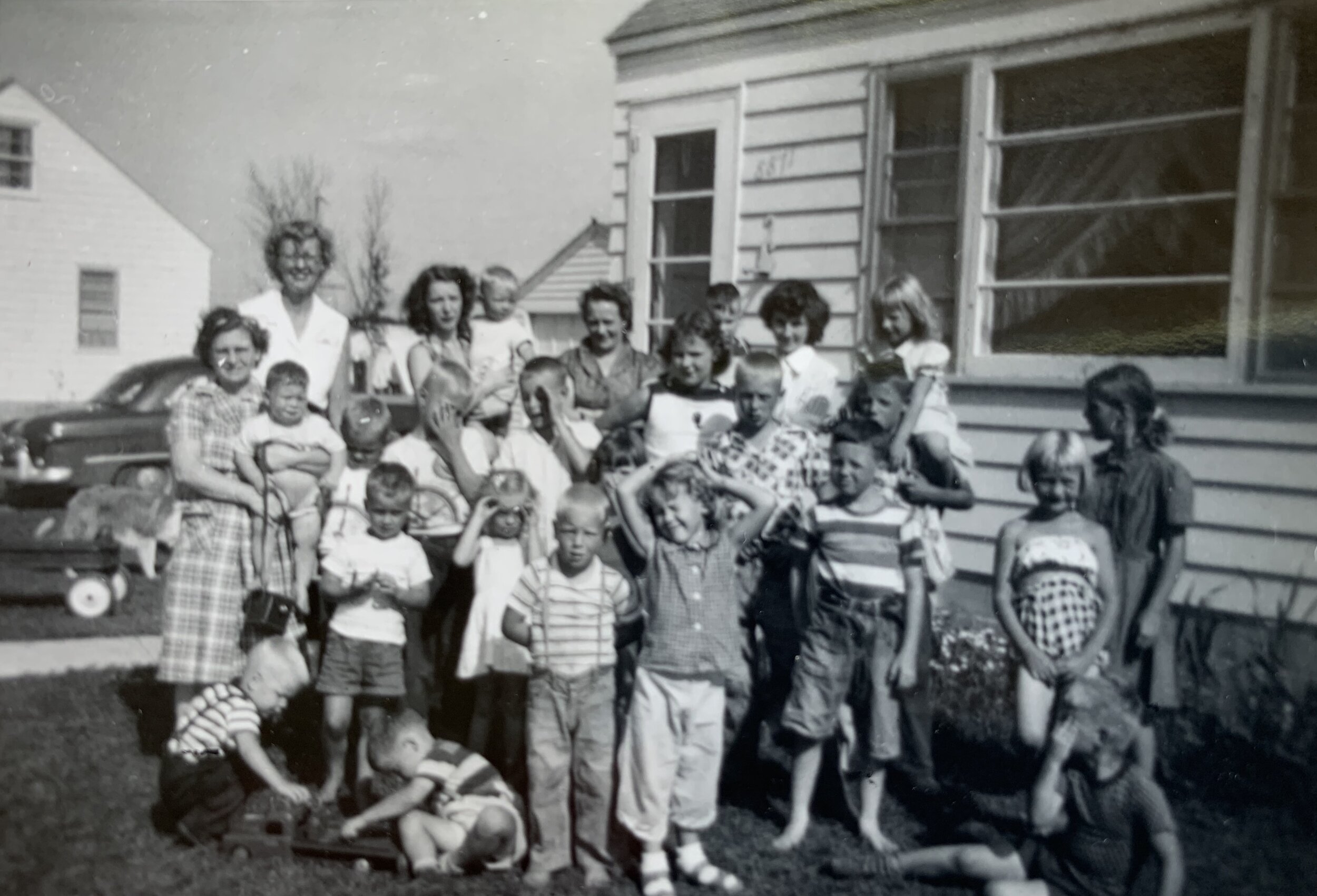I am a child of the 50’s. I’m the kid in the middle row, first from the left, in the arms of the Mom in a plaid housedress.
There were so many kids on my block that we filled a school bus. That driver had such an easy route: one block and then drive to the drop zone in front of Lovell Elementary.
When those final few hot sticky days of the school year came to an end, it truly was ‘School’s out for Summer!’ Alice Cooper had nothing on us.
My daily routine was simple; wake up, eat breakfast, and then race out the back screen door in the search of who else was out and ready to play some baseball. There were no parks in my neighborhood. Sometimes we’d play in the street. Other times we’d play ‘small ball’ in a backyard.
There were different rules for backyard small ball – no bunting, no ground rule doubles, and no stealing bases. The rules were reached via a unanimous vote after Kenny had bunted and was able to score a homerun because my throw to first was so wild that it broke my Mother’s kitchen window.
My parents were understandably furious with me. My Mother scolded, “You’re letting in the flies!” I got such a stink eye from her when I replied, “It wasn’t a fly. It was a bunt.”
The broken window incident forced us out of every Mother’s backyard and to the literal edge of town, a block and a half away. The boundary of my little hometown of Lexington, Minnesota was Flowerfield Road. Which was really just a tractor path in the dirt separating a cornfield from my neighborhood of newly built identical houses.
The farmer that owned the cornfield planted pretty close to Flowerfield but left just enough open land for us to mark out a makeshift infield and outfield. It was flat enough, grassy enough, and devoid of cow pies so it was perfect.
We played complete 9 inning games without an umpire. We used an umpire once. But the kid who was designated to be the caller of balls and strikes was the kid that wasn’t chosen for a team. That kid was me. I retaliated by calling every player out as soon as they stepped into the batters box.
The next day we played umpire less which meant we called balls and strikes by consensus. Some pitches were easy to call. If the ball hit the ground before it reached the batter – ball. If the ball hit the plate – ball. If the ball hit the batter – well did he/she deserve it? – OK strike. Walks were not apart of our style, you either swung or got dinged.
Our strike zone was looser than the hinges on a screen door. A batter was wise to swing at anything above the shoelaces, lower than the armpits, and anywhere left or right of the catcher’s glove because if they didn’t it’d be called a strike.
Every player on both teams was allowed to protest a call. After a few games the strike zone was established and we learned to play more than protest. None of us were great ball players but we had ethics.
On those rare occasions when the kids from the nearby street challenged us to a game, it never went well. Our gerrymandered rules never sat well with our opponents and no one ever thought to discuss the rules before the first pitch so chaos repeatedly ensued.
The first street vs. street game lasted only 1 ½ innings and ended in acrimony.
The game started with their side winning “bottle caps” (translation: cheated first) and our side taking to the field. Their first batter was called out on strikes and from there it went downhill fast.
No one scored. No one got on base. Our pitcher threw every pitch inside and sometimes directly at the batter and when they took the field their pitcher did the same to us. In the top of the second, our pitcher dinged their batter in the back and then the gloves literally came off.
Luckily no punches were thrown. The game ended with prejudice. A week later we made it through 5 innings before disbanding. And by August we were able to complete a full 9 innings without any batter being intentionally hit. For a bunch of grade schoolers we learned the game was bigger than any of us.
Oh, to play some summer ball in a cornfield again. Bottle Caps!
